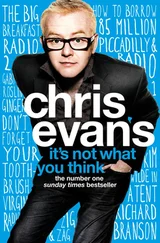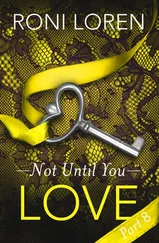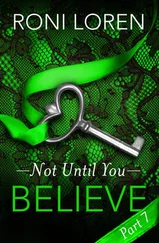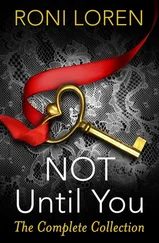‘How is your daddy?’ he asked, after a particularly loud belch.
In a few sentences, I told him everything the doctor had said and the reason for my visit.
As I was speaking, my uncle continued giving full concentration to his feeding without looking at me. At some points, I wondered if he was even listening at all.
It turned out that he was, because when I finished, he started relating his comprehensive thoughts about how he was sure the nurses intentionally kept a patient in a coma for longer than necessary so that it would look like they were busy earning their wages. While he was talking rubbish, my eyes strayed to the array of shoes somewhere on the other side of the room. I was mesmerised for just five seconds. Still, he caught me.
‘What are you looking at?’ he asked.
I panicked. Had he realised that I was not really listening to him? How was I going to escape from this latest trouble?
‘Are you looking at my shoes?’
I felt as awkward as a cow on ice. I did not reply.
‘You haven’t even seen anything.’ He laughed. ‘If you go into the next room, every single thing there is just shoes. And not one pair of them costs anything less than a thousand dollars.’
I kept looking at him.
‘Go on. Go out and look. I know you’re hungry, but after looking, you can come back and finish your rice.’
I put down the tray with my half-eaten meal on it and left. My uncle was right. The entire space was covered from wall to wall with racks. Each rack harboured shoes of a different shade and different make. There were green shoes and yellow shoes, and red shoes and turquoise shoes. Every single member of the class Reptilia must have been represented in that collection. I finished looking and returned to the bedroom.
‘Have you finished looking at my shoes?’
‘Yes, I have.’ Then as an afterthought, ‘Thank you.’
He nodded heartily and began another marathon monologue about his footwear. From there, he extended to the topic of his wristwatches and then to his designer clothing.
When his three bowls had nothing left in them but stubborn bones and fingerprints, my uncle lifted the Just Juice packet and poured the liquid directly into his mouth, pausing from time to time to spread his mouth open and belch out a noise that sounded like a frog in heat. I half-expected him to gobble up the empty packet as well. Instead, he flung it onto the tray. Then he shouted for Protocol Officer, who came and doled out some money retrieved, this time, from inside the wardrobe. I received the naira notes thankfully and left.
The next day, my father was transferred to the Abia State Teaching Hospital, Aba. A week later, he awoke.
To think that one person’s waking up from sleep could cause the sun to rise and the stars to shine in so many hearts. I was especially glad for my mother, whose constant night-and-day vigils had paid off. She had been right there when it happened.
Contrary to what soap operas have taught us to believe, a person who wakes up from a coma is first disoriented and confused. So my mother could not say exactly how long it was that my father’s eyes had been open.
‘It was around 11 a.m. or so that I raised my head from a brief nap and saw him staring at the ceiling,’ she said.
Like people who dream without ever expecting their dreams to come true, at first she had dismissed what she saw as the wishful thinking of a desperate wife who had spent the past many nights sleeping on a raffia mat on the floor of her husband’s hospital room.
‘Next thing, his eyes just turned and started looking at me,’ she continued.
Then he opened his mouth and said something in Igbo.
‘Ha abiala? ’
My mother became worried. The only times she heard her husband speak Igbo were when he was dealing with the villagers. He never spoke it to her, he never spoke it to us, he never spoke it in our house. Even the house helps from the village were banned from speaking vernacular. In due course, though, my mother realised that it did not matter what language he was speaking. The fact was, her man was awake and talking.
‘I started jumping about and screaming for the nurses to come,’ she laughed. ‘Honestly, you should have seen me. You would have thought I’d gone mad.’
But she was afraid to touch him. When the nurses came in to investigate, she hovered around the bed and waited with her hands clasped against her chest. Finally, one of them noticed her reticence and assured her that her touch would not push him back into oblivion. My mother then sat beside him on the bed and stroked his hand until I arrived.
The rest of the day, my father stared as if seeing for the very first time. He stared at the ceiling, at the nurses, at me, and at his wife. Apart from one or two insignificant phrases in Igbo, he did not speak and did not acknowledge anyone when he was spoken to. His breathing was also not much different from when his eyes had been closed. The doctor confirmed that his left side was slightly paralysed and that he might not be able to regain his communication skills for some time. He also explained that it was common for patients just waking from a coma to speak languages that had been relegated to the archives of their minds.
‘The most important thing,’ the doctor said, ‘is that there has been some major progress.’
Each day brought some new improvement. The catheter was removed. He could walk to the bathroom while he leaned on my mother’s shoulders, taking one slow step after the other. He was able to eat some solid foods which my mother fed to him with a small plastic spoon as if he were a baby. She never complained. Not even when he spat unwanted food onto her clothes.
Time and time again, my mother said that she owed everything she was in life to my father. Prior to his arrival, tradition had placed her as one of the least important members of her family. But when this most eligible bachelor asked for her hand in marriage, her ranking increased overnight. Her elder brothers even sought her opinion regarding arrangements for their father’s burial. Her union with my father, despite having suffered its own unique variety of roughness, had created a warm, secure environment for her because one thing had remained constant: her husband loved her and she enjoyed loving him in return.
I made quick arrangements for Godfrey, Eugene, and Charity to visit the hospital to welcome their father back to our world. One by one, they walked up to his bed and held his hand.
‘Daddy, how are you?’ Godfrey said.
‘Daddy, we miss you,’ Eugene said.
‘Daddy, when are you coming home?’ Charity said.
As soon as they touched on his daughter, a faint glow seemed to light in our father’s eyes and the right side of his lips appeared to twist slightly upwards. That was when we knew for sure that he was aware of us being there.
Owing to the distance from Umuahia to Aba, my siblings could no longer pop into the hospital as casually and as regularly as before. Neither could my mother come home as often for a change of clothing or to inspect her shop. She packed some personal items and became a permanent resident of the hospital. Depending on the kindness of the nurses on duty, she had her daily shower in one of the hospital bathrooms. Regarding family visits, we agreed on an arrangement where the less significant participants in the hospital drama would sort of take it in turns. That particular morning, it was Charity’s turn and I took her along with me to Aba.
My mother was dozing off on the bedside chair when we arrived. With an excited yelp and a fervent shoulder shake, Charity woke her up. They hugged and kissed and cuddled as if they had not seen each other in months. I observed my mother’s eyes casting their spotlight on Charity’s armpit. The hair had overgrown again. My mother removed her eyes and let the matter pass.
Читать дальше
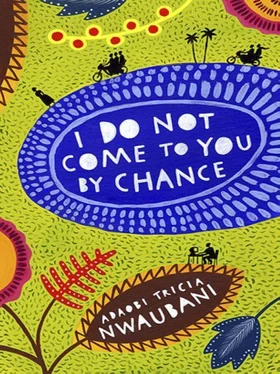
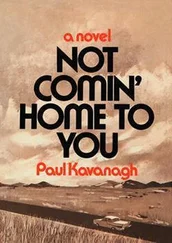

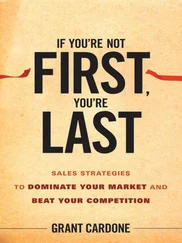

![Майкл Азеррад - Come as you are - история Nirvana, рассказанная Куртом Кобейном и записанная Майклом Азеррадом [litres]](/books/392533/majkl-azerrad-come-as-you-are-istoriya-nirvana-ra-thumb.webp)



